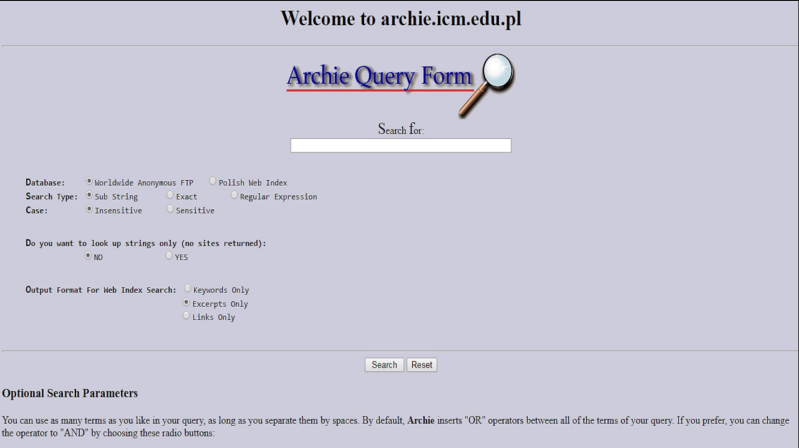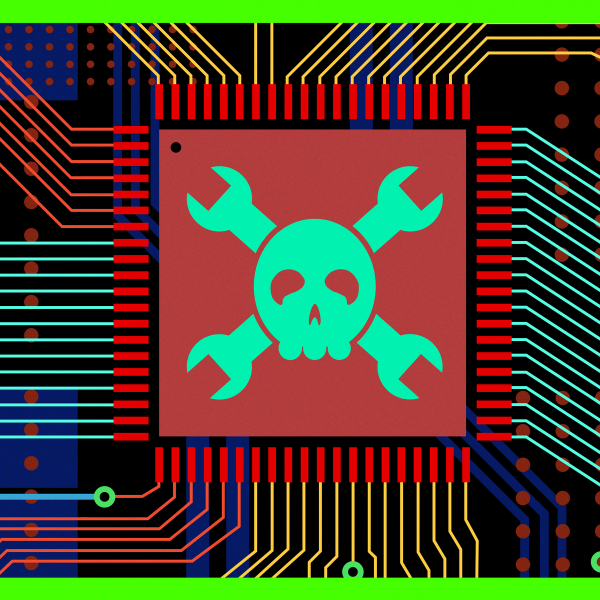Back in the innocent days of the late 1980s the Internet as we know it today did not exist yet, but there were still plenty of FTP servers. Since manually keeping track of all of the files on those FTP server would be a royal pain, [Alan Emtage] set to work in 1986 to create an indexing and search service called Archie to streamline this process. As a local tool, it’d regularly fetch the file listing from FTP servers in a list, making this available for easy local search.
After its initial release in 1990, its feature set was expanded to include a World Wide Web crawler by version 3.5 in 1995. Years later, it was assumed that the source for Archie had been lost. That was until the folk over at [The Serial Port] channel managed to track down a still running Archie server in Poland.
The name Archie comes from the word ‘archive’ with the ‘v’ stripped, with no relation to the Archie comics. Even so, this assumption inspired the Gopher search engines Jughead and Veronica. Of these the former is still around, and Veronica’s original database was lost, but a re-implementation of it is still around. Archie itself enjoyed a period of relative commercial success, with [Alan] starting Bunyip Information Systems in 1992 which lasted until 2003. To experience Archie today, [The Serial Port] has the Archie documentation online, along with a live server if you’re feeling like reclaiming the early Internet.

















Good old scavenger hunt!
Pretty amazing that one was found still running
Hand-me down technology is like that.
“That was until the folk over at [The Serial Port] channel managed to track down a still running Archie server in Poland.”
I’m glad, too, but I’m not exactly surprised.
If there’s any place such things survive, I’d guess any time it must somewhere be in former eastern block.
The mentality is or was simply a bit different, I guess? 🤷♂️
Things aren’t or weren’t so actively being replaced by latest tech as it’s the norm in the west, or so it seems.
Rather, ancient backup copies were being left in storage “just in case”.
Speaking under correction, of course. Can be very well coincidence here, too. 🙂
Though if I had been asked to make a guess where to find Archie, on top of my list of answers would have been Poland, too.
and yet, no released files to run your own. talk about gatekeeping.
https://files.serialport.org/archie/archie-3.5-beta/
I wonder if people who gatekeep realize they do it…..
Anyway, here are the files you didn’t bother to look for:
https://files.serialport.org/archie/archie-3.5-beta/
Although feel free to complain about it not coming in a prebuild docker container or whatever you feel like gatekeeping about.
I gate keep some of the programs I write. Those trend to have a high potential for abuse and I really don’t want the skids getting ahold of them.
I tend to share with people I know though.
TBF complaining about lazy journalism is not gatekeeping – this is HaD, and a youtube video is a terrible way to document a software project, so while you’re writing an article for a technical and geeky audience you might go to the trouble of linking any further information / code.
But then half the time they can’t even be bothered to write out acronyms so *shrug*.
> complaining about lazy journalism is not gatekeeping
Wait, is that gatekeeping gatekeeping…? :-)
Sudos said: “and yet, no released files to run your own.”
That is not complaining about journalism. That is complaint directly about The Serial Port, which to me was implying they weren’t worthy of a HaD article. Note, the accusation is completely false and they didn’t even spend the required 10 seconds doing research to find that out. Which would seem to provide further signal that they intended to try and diminish The Serial Port’s standing in the community.
As for HaD journalism quality any regular reader knows what to expect (also, you get what you pay for…). We can always help by posting the missing link, acronyms and LTAs, etc.. Many HaD authors will improve their articles with polite feedback.
You really can’t discuss resurrecting Archie without mentioning the Veronica search engine:
1. Veronica (search engine)
https://en.wikipedia.org/wiki/Veronica_%28search_engine%29